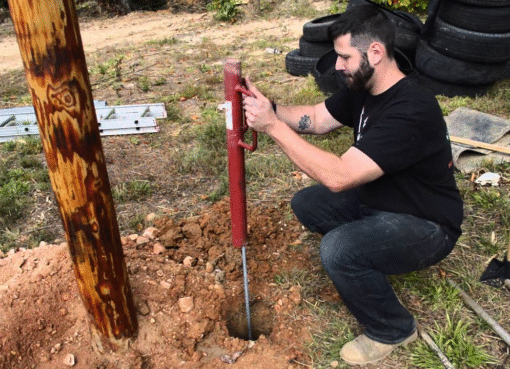Mercedes C-Class Engines – A Complete Guide to Performance, Reliability, and Maintenance

The Mercedes-Benz C-Class is one of the most popular and best-selling models from the German luxury automaker. Known for blending elegance, performance, and advanced technology, the C-Class offers a wide variety of engines to suit different driving styles and market needs. Over the years, Mercedes has continuously updated the C-Class engine lineup, introducing new petrol, diesel, hybrid, and performance-oriented AMG options. This blog covers everything you need to know about Mercedes C-Class engines, including types, specifications, performance, fuel efficiency, common issues, and maintenance tips.

1. Evolution of Mercedes C-Class Engines
Since its launch in 1993, the Mercedes C-Class has gone through multiple generations. Each generation has brought new engine technology, better efficiency, and improved performance. The early C-Class models (W202) came with simple yet durable petrol and diesel engines, while the latest W206 generation boasts advanced turbocharged units and hybrid systems. Mercedes has also focused heavily on reducing emissions, meeting stricter environmental regulations without compromising driving enjoyment.
Generations at a Glance:
-
W202 (1993-2000): Simple petrol and diesel engines, reliable but less efficient compared to modern standards.
-
W203 (2000-2007): Introduction of supercharged Kompressor petrol engines and refined diesels.
-
W204 (2007-2014): Turbocharged petrol and diesel options, along with high-performance AMG models.
-
W205 (2014-2021): Downsized turbocharged engines, plug-in hybrids, and new AMG performance units.
-
W206 (2021-Present): Mild-hybrid technology, electrified AMG engines, and advanced efficiency features.
2. Types of Mercedes C-Class Engines
Mercedes offers the C-Class with a variety of engines to cater to different drivers, from those who prioritize economy to enthusiasts looking for maximum performance.
2.1 Petrol Engines
Petrol engines in the C-Class range from small, efficient 1.5-liter turbocharged units to high-output AMG engines. Most modern petrol variants use turbocharging and direct injection to balance power and efficiency. The C180, C200, and C300 are popular trims offering smooth performance and respectable fuel economy.
2.2 Diesel Engines
Diesel engines have been a core part of the C-Class lineup in Europe and other markets. Known for their torque-rich performance and fuel efficiency, options like the C220d and C300d have been favorites among long-distance drivers. Mercedes diesel technology includes advanced emission controls to meet modern environmental standards.
2.3 Hybrid and Plug-In Hybrid Engines
Recent C-Class models offer plug-in hybrid (PHEV) options such as the C300e, which combines a petrol engine with an electric motor for improved efficiency and lower emissions. These models can run on electric power alone for short trips, making them ideal for city driving.
2.4 AMG Performance Engines
The Mercedes-AMG C43 and C63 are performance-focused variants with engines tuned for speed and excitement. Older C63 models featured naturally aspirated V8s, while newer ones use downsized, turbocharged engines with hybrid assistance to deliver massive power while improving fuel efficiency.
3. Performance and Driving Experience
The performance of a Mercedes C-Class engine depends heavily on the specific model. The entry-level petrol and diesel units provide a comfortable balance between performance and economy, making them great for everyday use. The turbocharged petrol engines deliver quick acceleration, while diesels excel in long-distance cruising.
The AMG engines are a different story altogether. The C43 AMG with a V6 biturbo engine offers sports car-like acceleration, while the C63 AMG, with its handcrafted V8 (or new high-performance hybrid powertrain), delivers a thrilling driving experience. Mercedes engineers have mastered the art of blending performance with luxury, ensuring that even high-output engines maintain refinement.
4. Fuel Efficiency
Fuel economy varies significantly depending on the engine type:
-
Small petrol engines: Around 35-45 mpg (UK) or 6.5-8.0 L/100 km.
-
Diesel engines: Around 45-60 mpg (UK) or 4.0-5.5 L/100 km.
-
Hybrid engines: Over 100 mpg (UK) equivalent in electric-assisted driving.
-
AMG engines: 20-30 mpg (UK) or 9.5-14.0 L/100 km.
Hybrid and diesel options are best for drivers looking to minimize fuel costs, while AMG variants trade fuel economy for performance.
5. Common Mercedes C-Class Engine Issues
While Mercedes engines are known for quality, some issues have been reported across different generations.
Common Problems:
-
Oil leaks: Often from valve cover gaskets or oil cooler seals.
-
Timing chain wear: More common in older petrol engines if not serviced on time.
-
Diesel particulate filter (DPF) issues: Usually caused by short trips that prevent proper regeneration.
-
Turbocharger problems: Can occur if oil changes are neglected.
-
Electronic sensor faults: Such as mass airflow sensors or oxygen sensors.
Most of these problems can be prevented with proper maintenance and timely repairs.
6. Maintenance Tips for Mercedes C-Class Engines
Maintaining a Mercedes C-Class engine properly ensures performance, efficiency, and longevity.
Essential Tips:
-
Follow the recommended service intervals.
-
Use only Mercedes-approved engine oil and filters.
-
Warm up the engine before hard acceleration.
-
Keep the cooling system in top condition to prevent overheating.
-
For diesel models, take the car on longer drives to help the DPF regenerate.
-
Address warning lights immediately to prevent further damage.
Mercedes also offers service plans that can help manage costs while keeping the engine in peak condition.
7. Why Choose a Mercedes C-Class Engine?
There are many reasons why Mercedes C-Class engines are respected in the automotive world:
-
Engineering excellence: German precision in design and manufacturing.
-
Advanced technology: From turbocharging to hybrid systems.
-
Performance range: From economical commuters to track-ready AMG variants.
-
Longevity: With proper care, many engines can exceed 200,000 miles.
-
Luxury feel: Smooth, refined operation even in base models.
8. Future of Mercedes C-Class Engines
The future of C-Class engines is heading towards greater electrification. The latest generation already includes mild-hybrid systems across the range, and Mercedes is investing heavily in plug-in hybrids and fully electric models. While traditional combustion engines are still available, the brand is moving toward a more sustainable lineup, in line with global emission targets.
9. Buying Advice for Mercedes C-Class Engines
When buying a Mercedes C-Class, the engine choice should depend on your driving style and needs:
-
Choose a petrol engine if you drive mainly in the city and want smooth acceleration.
-
Opt for a diesel if you cover high motorway mileage.
-
Select a hybrid for maximum efficiency and low emissions in urban areas.
-
Go for an AMG variant if you want top-tier performance and driving excitement.
Always check the service history and have a professional inspection before purchasing a used C-Class.
10. Conclusion
Mercedes C-Class engines represent a perfect blend of performance, efficiency, and luxury. Whether you choose an economical diesel, a refined petrol, a cutting-edge hybrid, or a fire-breathing AMG, you are guaranteed an engine built with precision and passion. By understanding the different types, common issues, and proper maintenance practices, you can enjoy your Mercedes C-Class for many years and miles to come.







Leave a Comment